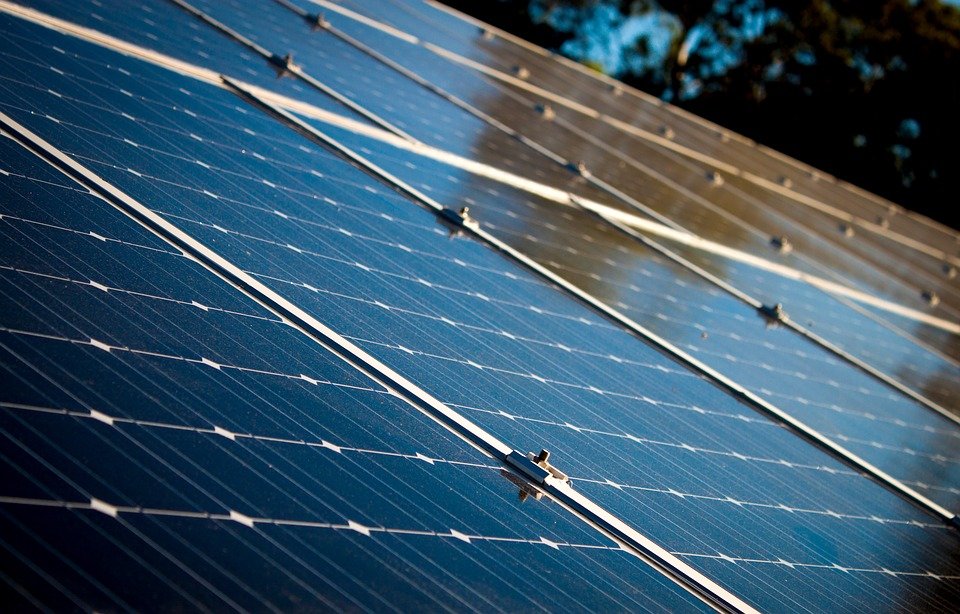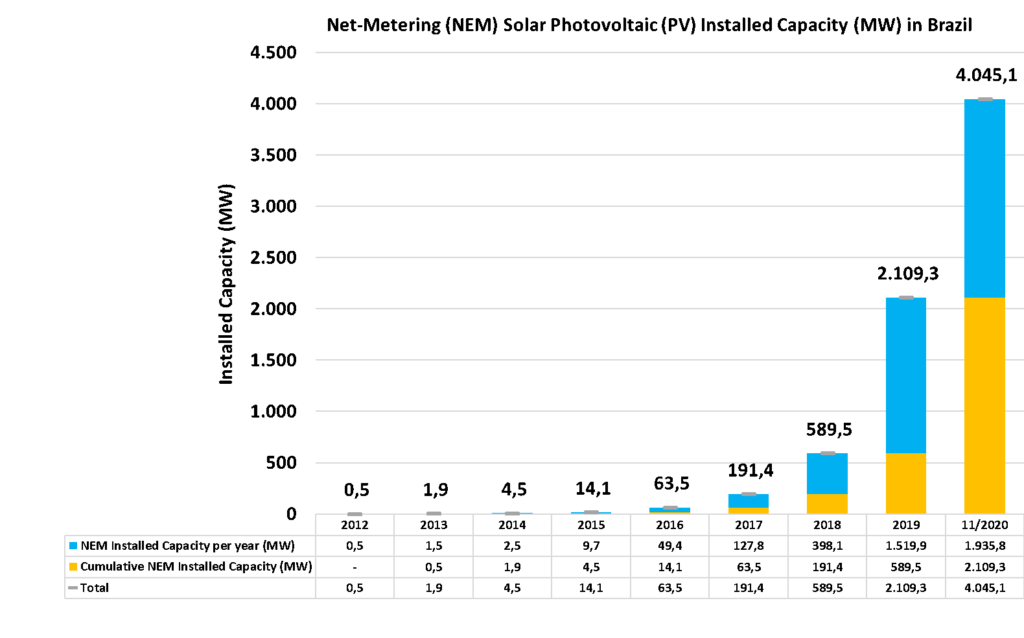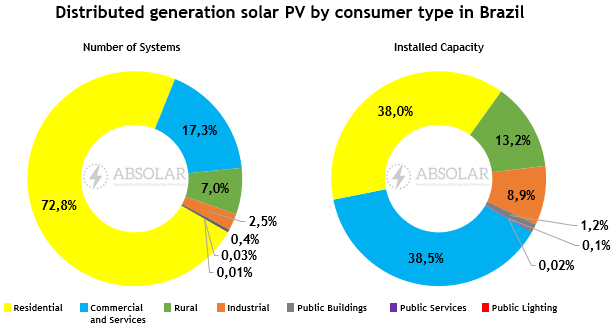Member/Partner News
Solar photovoltaic energy reaches 4 gigawatts in distributed generation in Brazil

According to ABSOLAR, the segment has brought over R$ 20.0 billion in investments and more than 121 thousand accumulated jobs since 2012
São Paulo, 2020 – Solar energy has just reached the historic milestone of 4 gigawatts (GW) of installed capacity in solar photovoltaic distributed microgeneration and minigeneration in rooftops and façades of households, businesses, industries, farms, public buildings and small plots of land in Brazil.
According to the Brazilian Solar Photovoltaic Energy Association (ABSOLAR), there are more than 333 thousand photovoltaic systems connected to the grid in Brazil, resulting in financial savings and improved environmental sustainability to over 415 thousand consumer units.
Total investments since 2012 amount to R$ 20.0 billion, generating over 121 thousand accumulated jobs in the period, distributed throughout all regions of Brazil.

According to ABSOLAR, the solar photovoltaic technology is present in more than 5,000 municipalities and in all Brazilian states, whose leaders in installed capacity are, respectively: Minas Gerais (790.7 MW), São Paulo (509.7 MW), Rio Grande do Sul (503.7 MW), Mato Grosso (291.0 MW) and Paraná (277.1 MW).
Solar photovoltaic, based on the direct conversion of solar radiation into electricity in a renewable, clean and sustainable way, leads the segment of distributed microgeneration and minigeneration by a wide margin, representing more than 99.9% of the country's installations.
Residential consumers lead the number of installed systems, representing 72.8% of the total. They are followed by companies from the commercial and services sectors (17.3%), rural consumers (7.0%), industries (2.5%), public buildings (0.4%) and other kinds, such as public services (0.03%) and public lighting (0.01%).
In terms of installed capacity, consumers from the commercial and services sectors lead the use of solar photovoltaic energy, with 38.5% of the installed capacity in the country, closely followed by residential consumers (38.0%), rural consumers (13.2%), industries (8.9%), public buildings (1.2%) and other kinds, such as public services (0.1%) and public lighting (0.02%).

For ABSOLAR's CEO, Rodrigo Sauaia, photovoltaic solar energy adds several social, economic and environmental benefits to Brazil's progress. “Among them are the reduction of electricity expenses, attraction of investments, the generation of quality local jobs, the reduction of impacts on the environment, the reduction of electricity losses in the grid, the postponement of investments in transmission and distribution and the relief of the electricity system during periods of high daytime demand, such as in the summer months”, Sauaia highlights.
The chairman of ABSOLAR's Board of Administrators, Ronaldo Koloszuk, points out that, over the past seven years, distributed solar generation has grown by an average of 239% per year in Brazil. “This development brings benefits to those who have and who do not have solar energy at their households. Since 2012, small and medium-sized solar systems on rooftops and small plots of land have enabled direct savings of more than R$ 5.1 billion to consumers, resources that have been reinvested back into the local economy. This happens through income release - money saved on the electricity bills of solar system users and applied by these consumers to buy other products, in their area”, Koloszuk concludes.
![Global Solar Council [logo]](/static/images/gsc-logo-horizontal.svg)